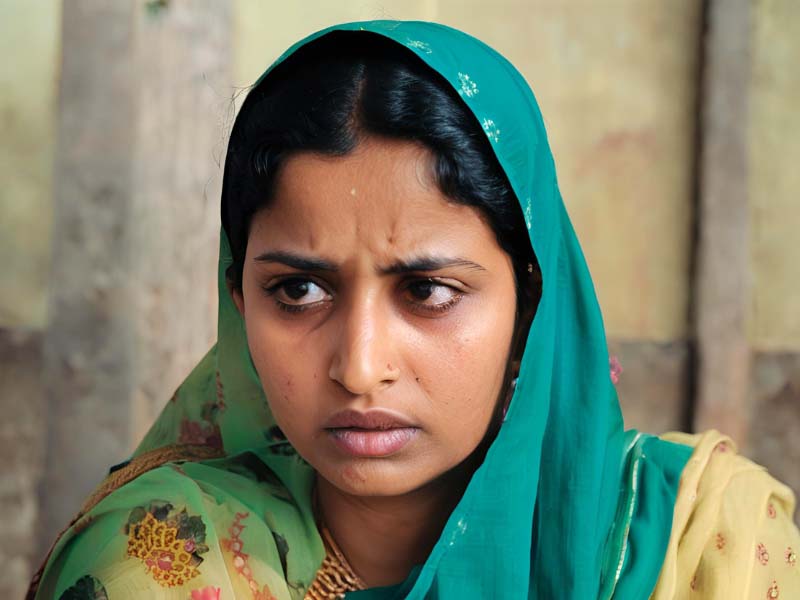Free Legal Aid Reunites Lucky With Her Husband

Lucky Begum got married at the age of 16. But his married life was not very good. Due to the negligence of her husband Abul Kalam Sheikh, all the peace in the world is gone. Lucky Begum was the second wife of Abul Kalam Sheikh. Her life with two children became very difficult and painful. Gure did not get any help from people door to door. Lucky eventually learned about FAIR’s free legal aid by attending one of FAIR’s free legal aid sessions in her area. A few days later, on April 15, 2015, he came to the FAIR Community Legal Service Center (CLSC) and filed a complaint seeking justice and support. His complaint number is KCCWA-0255.
Introduction to Free Legal Aid
Free legal aid became Lucky’s beacon of hope. FAIR CLSC, Khulna immediately registered his complaint and conducted a fact-finding to verify the truth of the situation. Due to the facts of the incident, FAIR CLSC took immediate steps to mediate. They sent a letter to Abul Kalam, but initially, Abul Kalam refused to accept the letter. FAIR CLSC Paralegal then provides a notice. And Abul Kalam was asked to attend the mediation/arbitration. Later, on the appointed day, in the presence of both parties, the FAIR CLSC heard the arguments of both and settled the grievance through mediation.
Empowering the helpless: Free legal aid gave Lucky a platform to voice his grievances and seek justice. It empowers him to take a stand against negligence and claim his rights.
Ensuring Accountability: FAIR CLSC’s actions have ensured that Abul Kalam cannot shirk his responsibilities. Their persistent efforts brought him to the mediation table, ensuring accountability.
Facilitating Mediation: The mediation process allows both parties to discuss their issues openly. Through counseling sessions at FAIR CLSC, they facilitated a space for dialogue and solutions.
Stability restored: Successful mediation leads to a peaceful resolution, with Abul Kalam agreeing to take over the family’s responsibilities.
A new beginning for the lucky ones
In the mediation session, Lucky and Abul Kalam discussed their problems in detail. FAIR CLSC’s intervention ensured that both parties could communicate effectively. Through these discussions, Abul Kalam accepted his negligence and agreed to support his family.
As a result, Lucky can return to her husband’s house. The process has brought a lot of relief to Lucky, who has been struggling for over two and a half years. FAIR CLSC’s support ensured that her children would have a stable environment and that she could rebuild her life.
Motivational change and support
Lucky’s story is a powerful testament to the impact of free legal aid. She highlights the importance of legal services in resolving family disputes and ensuring justice, from neglect to reconciliation with her husband. This success story serves as an inspiration for donors, beneficiaries, and stakeholders associated with FAIR CLSC. It plays an important role in free legal aid in building a just society.
Conclusion
Free legal aid was instrumental in reuniting Lucky Begum with her husband and ensuring the well-being of her family. His story is illustrated. That timely and effective legal intervention can solve problems and bring peace to the lives of vulnerable people. FAIR CLSC’s immediate action ensured the protection of Lucky’s rights and the reunification of his family. Demonstrates the transformative power of legal aid to nurture her family harmony and justice from despair to stability. By sharing Lucky’s story, we can raise awareness about the importance of free legal aid. Inspires others by promoting, advocating, and advising on legal services.
Note that FAIR, a rights-based development organization, is implementing the Making Women’s Legal Right a Reality in Bangladesh project in Khulna with the financial support of the Community Legal Service Project (UK Aid) in partnership with Bangladesh National Women Lawyers Association (BNWLA). The Projects provide free legal aid to victims of violence, especially women, children, ethnic minorities, Dalits, and the poor.
N. B. The photo of the woman used in this story is not original. Created by AI.
